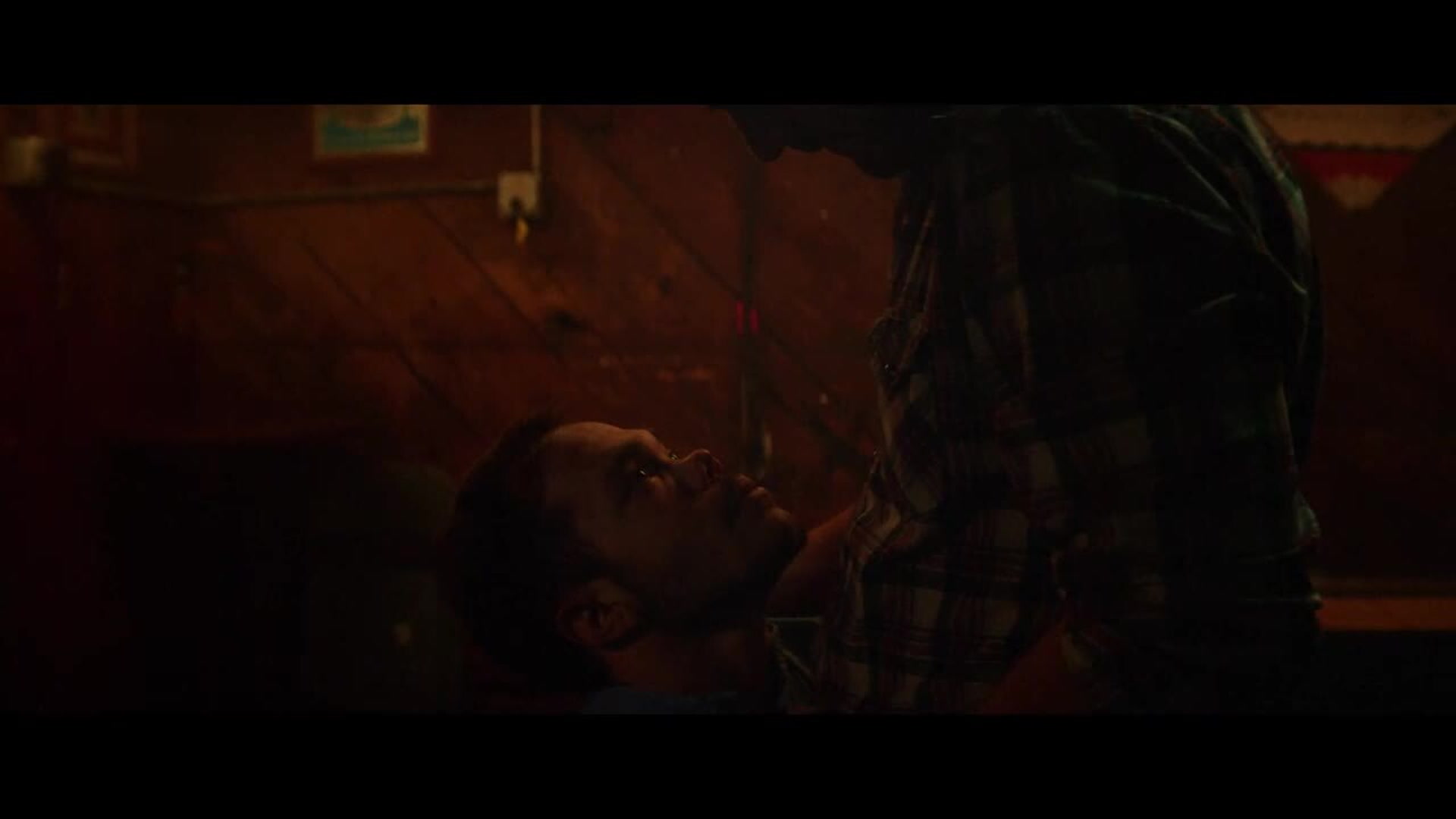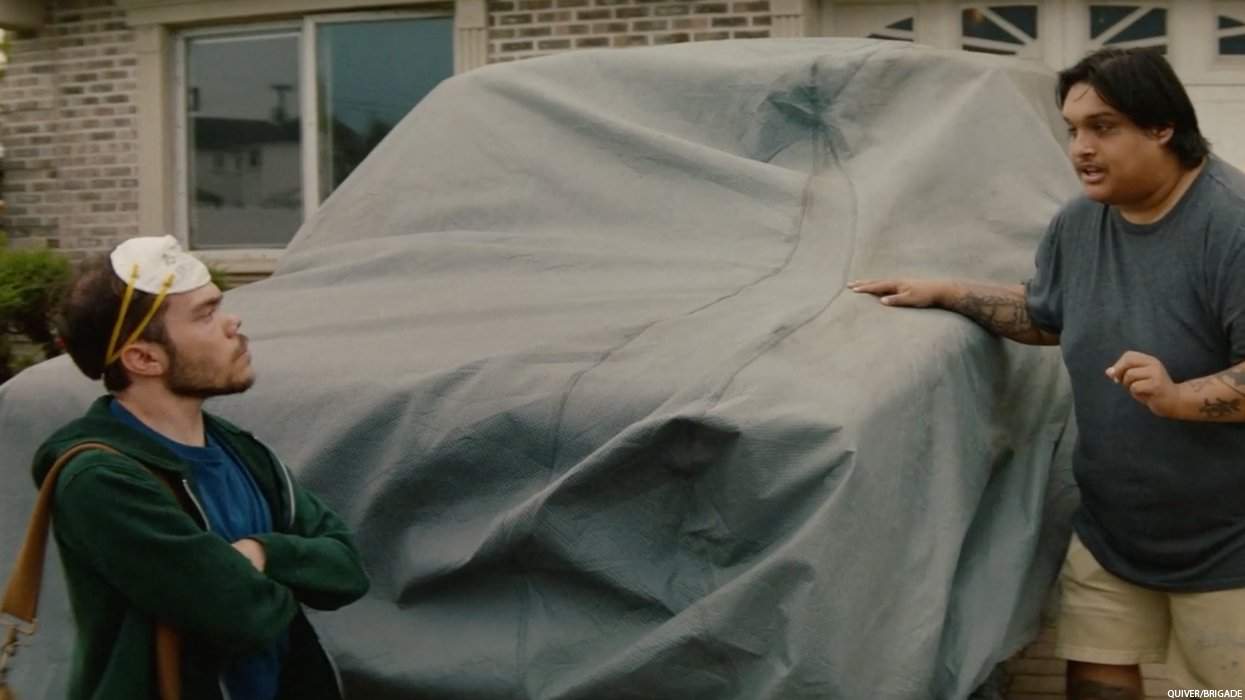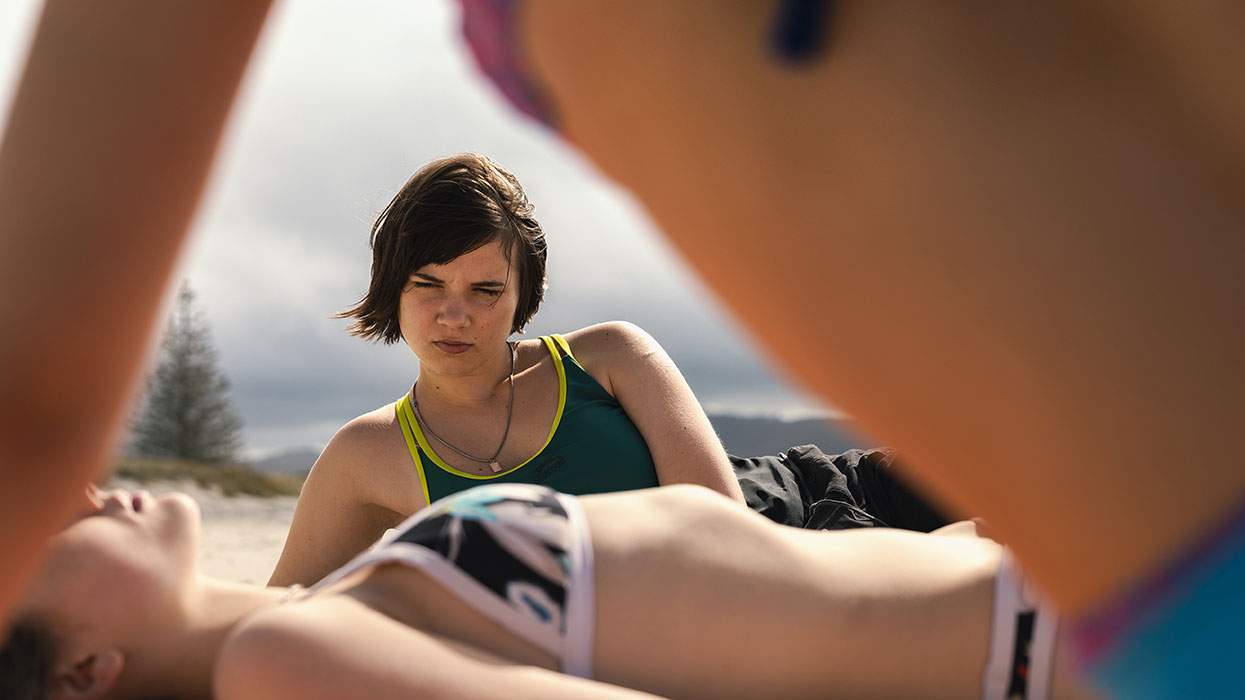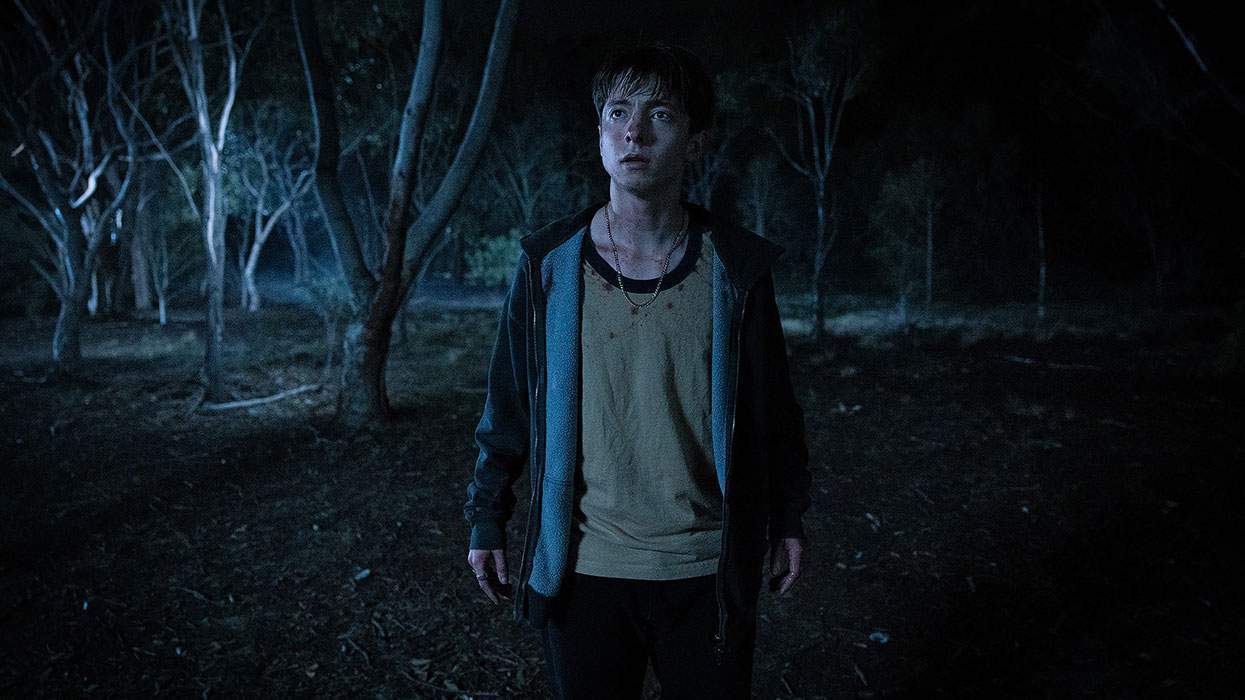In the new film, Unidentified Objects, a gay little person who goes on an adventure with a quirky neighbor who insists she’s been abducted by aliens finds himself and opens up to the world around him
The plot sounds far-fetched, but the movie — directed by Juan Felipe Zuleta, written by Zuleta and Leland Frankel, and starring Sarah Hay and Matthew August Jeffers — has a universal message of overcoming grief and disadvantages to finally arrive at a place of peace.
“I was able to step into a character that was, above all, human and raw, honest and vulnerable and a little dangerous,” Jeffers tells The Advocate. “So it’s been just literally a dream come true for me to, for me to have taken on this project.”
He says there was a time in early June 2020 when he almost declined to audition for anything. “I shiver at the thought of passing on this,” he says.
Jeffers explains that the value of grief is among the takeaways from the film.
“I think a lot of people deal with grief throughout their lives, and I think the image of someone grieving and going on a road trip is actually so poetic because it’s this idea that you don’t have to be in the driver’s seat the whole time,” he adds.
It is never Peter who takes the wheel. However, he eventually ends up emotionally and physically in a different position than where he began, Jeffers says.
“And so it’s this idea that you don’t have to do it alone. You don’t have to go it alone, and sometimes you can feel safe with having a partner or whoever [will be] in the driver’s seat to help get you to where you need to go.”
He says he lost his mom nearly 10 years ago.
“I often think about how I’ve grieved over the past decade and how different my life would look if I did not have the emotional support from friends and loved ones who carried me at times, and I hope that’s kind of one of the takeaways,” Jeffers says.
One of the scenes in the film involves Jeffers as Peter sitting at a dark and dingy bar. An attractive, rugged-looking man with a flannel shirt and jeans sits a few seats along the bar down from him. The two look at each other and engage in a conversation about stereotypes and eventually end up dancing together. Toward the end of the scene, a conversation ensues about the man at the bar having never met a little person before. However, he uses the word "midget," which is considered derogatory.
Jeffers says he permitted the writers to use that particular language because it’s real for him.
“Before they brought me on, there was no 'midget' in the script because understandably they were wary of offending because it’s obviously a derogatory word — or maybe not obviously. It’s a derogatory word. But my whole take on filmmaking is the more danger, the better, always. And so I was like, push, push, go to the line, and then tip your big toe over the line and see what happens. So I did give them permission to use words and to use language and images that might conjure up discomfort in an audience, which, as a filmmaker myself, really is my goal.”
Jeffers says matters of representation aren’t lost on him. He says that while it would be inappropriate for him to speak about the LGBTQ+ experience as a straight man, he has spent much time with the community over the last year and believes he understands the value of seeing one’s community represented.
“I have spent the last year on the queer festival circuit and have met incredible filmmakers and human beings who are queer,” Jeffers says. “I have learned more about the queer experience this year than my entire life combined, obviously from participating in panels and these film festivals. I think there are so many similarities between the [little person] experience and the queer experience.”
He notes that, “Of course, they’re different entities, but feeling like an outsider, right? Feeling like you have to take 15 steps for every one step that, you know, most people have to take. That is, in many ways, why it was so easy to feel Peter inside of me and at the risk of offending some people in the queer community, I identify as heterosexual, but I am telling you, when we shot that bar scene, it didn’t hurt that he was really good looking, but when we shot that dance scene, neither of us had had a hug in months because of COVID.”
He continues, “We were both coming out of quarantine, and we were dancing together, and I genuinely felt like love for this part — not platonic love, like I was like falling in love with this man.”
“I have always said that if we as human beings are able to strip away the layers, the mile-long, mile-deep layers of norms we have built up over the course of our lives; if we’re able to strip all of that away in a state of raw vulnerability, I believe that humans can feel genuine love toward any human being.”
Unidentified Objects is currently available on VOD platforms.
Watch an exclusive clip of Unidentified Objects below.

















Charlie Kirk DID say stoning gay people was the 'perfect law' — and these other heinous quotes
These are some of his worst comments about LGBTQ+ people made by Charlie Kirk.